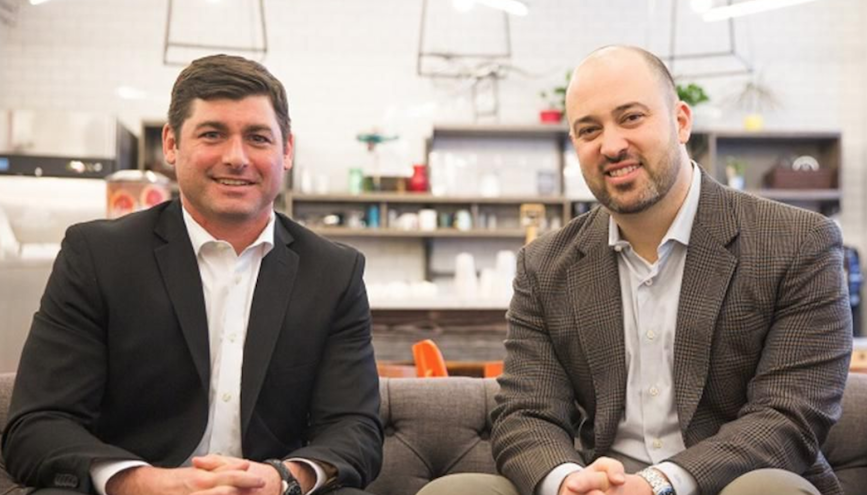Legacy garbage giants like Waste Management and Republic Services are starting to feel pressure from startups aiming to reinvent the way garbage is carted and dumped. Forbes has written about Rubicon Global, a decade-old Atlanta company that uses technology to connect haulers with cities and municipalities. Rubicon, which hit a $1 billion valuation at its last capital raise in September 2017, has attracted controversy, including a critical Bloomberg story that cast doubt on the $300 million in annual revenue Rubicon founder Nate Morris has claimed.
While Rubicon has made headlines as the Uber for trash, another disruptor, Recycle Track Systems, has been quietly adding customers and expanding its reach beyond its home base in New York City, where Rubicon does not operate. RTS was founded in 2014 by former Bank of America senior vice president Gregory Lettieri, 35, and his buddy Adam Pasquale, 41, whose great grandfather started in the garbage business with pushcarts on Mulberry Street in Manhattan’s Little Italy in the early 1900s.
RTS has raised $11.7 million in investment capital and signed up more than 500 customers including WeWork, Whole Foods, Soul Cycle, the Barclays Center and the Pierre Hotel. It’s servicing WeWork and Soul Cycle locations in Washington, D.C. and Philadelphia, in addition to other customers in those cities.
RTS’s main offering is its software platform and mobile app, which allow customers to schedule on-demand pick-ups of, say, a half-dozen dented desks from a WeWork location in Soho or a pile of broken stationary bikes from a Soul Cycle on the Upper East Side. Along with this Uber-like service, RTS does regularly scheduled pick-ups. It contracts with local haulers, providing them with tablets that run RTS software.
Though it has no trucks, RTS owns trash and recycling containers that it supplies to clients. RTS staffers train clients in how to separate trash to comply with city regulations. Last year, RTS had revenue of more than $10 million. In this interview, which has been edited and condensed, RTS CEO Lettieri describes how he and Pasquale got the company off the ground and why he believes it can compete for a share of the $65 billion garbage market.
Susan Adams: Where did you and your partner Adam Pasquale get the idea for Recycle Trash Systems?
Gregory Lettieri: We lived in the same apartment complex for almost 10 years and we were good friends. One night during the summer of 2014 we were at my place drinking beer and watching the world soccer championship. Adam said, “I think technology can change the garbage industry.”
Adams: Where was Adam working at the time?
Lettieri: His family had been in the waste and recycling business for four generations. He had a small carting company that he sold to a bigger company, Action Carting, and he was working there in sales.
Adams: Coming from outside the garbage business, what made you think you and Adam could start a successful business?
Lettieri: I asked Adams to do a PowerPoint presentation for me and he did it the next day. I was impressed that he turned it around so quickly. In 30 days we had a business model and we started raising money.
Adams: What’s your business model?
Lettieri: We’re a waste and recycling garbage company without trucks.
Adams: How do you charge?
Lettieri: We take a percentage of the monthly recurring pickup fee and a share of on-demand charges for extra material like a refrigerator from a restaurant or a mattress from a hotel.
Adams: How did you get your first customer?
Lettieri: Because Adam was in the industry for 20-plus years, we had some customers who were willing to come on quite quickly. Whole Foods was the first major client that trusted our technology. They had noise restrictions on what time of day the trucks could be there.
Adams: How difficult was it to get carting companies to work with you?
Lettieri: It’s a lot easier now, since we’ve been able to show that we add value. GPS directions are embedded in our app, so drivers don’t have to be on their mobile phones looking up addresses on Google Maps.
Adams: Do you do the same thing as Rubicon?
Lettieri: We have a similar business model but our technology is different. We can email and text our clients as our trucks are arriving. We’re truly like Uber or Lyft. A WeWork can use our app and tell us to come pick up three broken chairs and two printers.
Adams: Why can’t Rubicon do that?
Lettieri: I don’t know what Rubicon would say but they don’t have technology in trucks in our three cities.
Adams: Don’t local carting businesses already use technology?
Lettieri: They have technology that consolidates invoices and they have call centers and some ability to pull up information through a website portal. But they have nothing like our platform.
Adams: What else is different about the service you provide?
Lettieri: We like to say we provide white glove service. We take diversion rates to a higher level. We help you throw out more and recycle more. Our staffers, who we call sustainability analysts, train you how to sort your trash.
Adams: Is the garbage industry in New York City still affected by organized crime?
Lettieri: It used to be. We had to apply for a license and go through a background check to prove we didn’t have any connections to organized crime. It is a highly regulated industry.
Adams: Are you worried that the big waste players like Waste Management will copy you?
Lettieri: Even if one day they did, we’re built for the 15,000 independent waste hauling companies to use. We’re changing an industry.
-Susan Adams|Forbes

